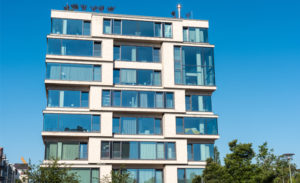February 14, 2020
6 Tips for Streamlining Utility Bill Collection
Utility bill collection is a critical part of cost recovery on multi-unit properties. But staying on top of collections for hundreds of units every month is no easy task. Here are six steps you can take to streamline your utility billing collection.
Create Accurate and Fair Bills
Tenants are more likely to pay a bill if it’s accurate, reasonable and fair. The reasoning behind this is pretty intuitive. Just like credit card invoices and restaurant checks, most tenants ask questions and dispute bills when the charges are excessive or unfounded.
But it’s not enough to just provide an accurate bill. Tenants must know the bills are accurate. This requires evidence and reasoning for how the bill was created. (More on that in a bit.)
Properties looking to streamline their utility bill collection can do so on the front end by creating good and payable bills to begin with. Of course, creating accurate bills requires time and expertise. You’ll also need a utility billing system in place to manage everything. (Typically, this is submetering or RUBS.)
Send Bills on Time
Late invoices hurt cost recovery. Bills that don’t arrive on time throw off tenants who planned to pay on time.
A lot of people live paycheck to paycheck. Some tenants just like to pay bills the same time each month, so they don’t forget. Other tenants might wonder why they should even have to pay if their landlord doesn’t bill on time.
Consistent billing schedules give tenants a chance to pay the utility bill. And when tenants have a chance to pay a bill, landlords have a much better chance of collecting. Being proactive and making sure those utilities are billed out properly goes a long way in increasing cost recovery.
Focus on Education
An often overlooked way to increase collections is education. If you want to get tenants to pay, help them understand what you’re asking them to do.
Tenants who don’t understand how the bill is calculated tend to not feel responsible for it. This is because they don’t see the connection between their actions and the cost of those actions. For example, if you include a $100 charge on a bill with no explanation, a tenant will have questions.
An easy way to educate is to include explanations of the bill on the invoice and then field whatever questions a tenant might have. We’ve seen landlords achieve 100% collection rates by just doing this.
But if you don’t have the time or expertise to handle this, a utility billing company can help with questions and education.
Stay on Top of Rent Roll
You can’t bill a tenant if you don’t know they exist. And while it sounds obvious to keep track of occupancy, it’s easy to fall behind on keeping the database up to date. Especially when you have to manage hundreds of units.
Keeping your rent roll and database up to date with move in/move out ensures you know who to bill and collect from. If you work with a third-party billing company, they can access rent roll through a seamless integration into your property management software. And when you and your third-party are both on the same page with occupancies, you can improve bill collection.
Have Provisions in the Lease
You need legal standing to collect utility expenses from tenants. To streamline bill collection, create leases with provisions that help you legally enforce the utility bills. As an added benefit, it also makes it clear to tenants which bills they are responsible for.
Stay on Top of Delinquencies
Delinquencies are a common pain point when collecting utility bills. It’s important to stay on top of early delinquencies before they snowball. Because while it’s easy for tenants to catch up on one or two missed payments, delinquencies in the thousands of dollars are a different story.
This matters for property owners and managers because huge accumulated delinquencies are costs you will never recover.
While staying on top of delinquencies is critical for bill collection, it can also be a challenge. Without a system in place, landlords have to check things manually with spreadsheets. This is time consuming and they often don’t do it.
Because of this, many landlords turn to utility billing companies to streamline the process for them. This way, landlords can curb delinquencies and not have to worry about assessing late fees, sending out delinquency notices or chasing down tenants for payments.
Conclusion
Utility bill collection is challenging but also unavoidable if you want to stay in business. The good news is there are ways to make it easier. So, whether you go it alone or work with a pro, the above tips will help you improve your collection process immediately.



